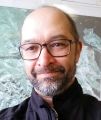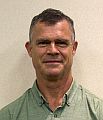RAISING WATER BALANCE AWARENESS: “Community-based science should be used to inform science models and planning. The Salt Spring Island Water Preservation Society is making a successful step in that direction,” states Dr. John Millson

“The Salt Spring Island Freshwater Catalogue Project that I am leading is providing field data for ground-truthing, as I call it, for some of the community-based science work that we are doing to support the work by the Islands Trust and Capital Regional District. The data can help us understand water quantity variability and water balance for an island. It all hangs together and dovetails nicely in a multi-threaded, decision-making process. Water quantity is such a big deal. Why is that? Well, islands only have rainwater for water supply,” stated John Millson.









